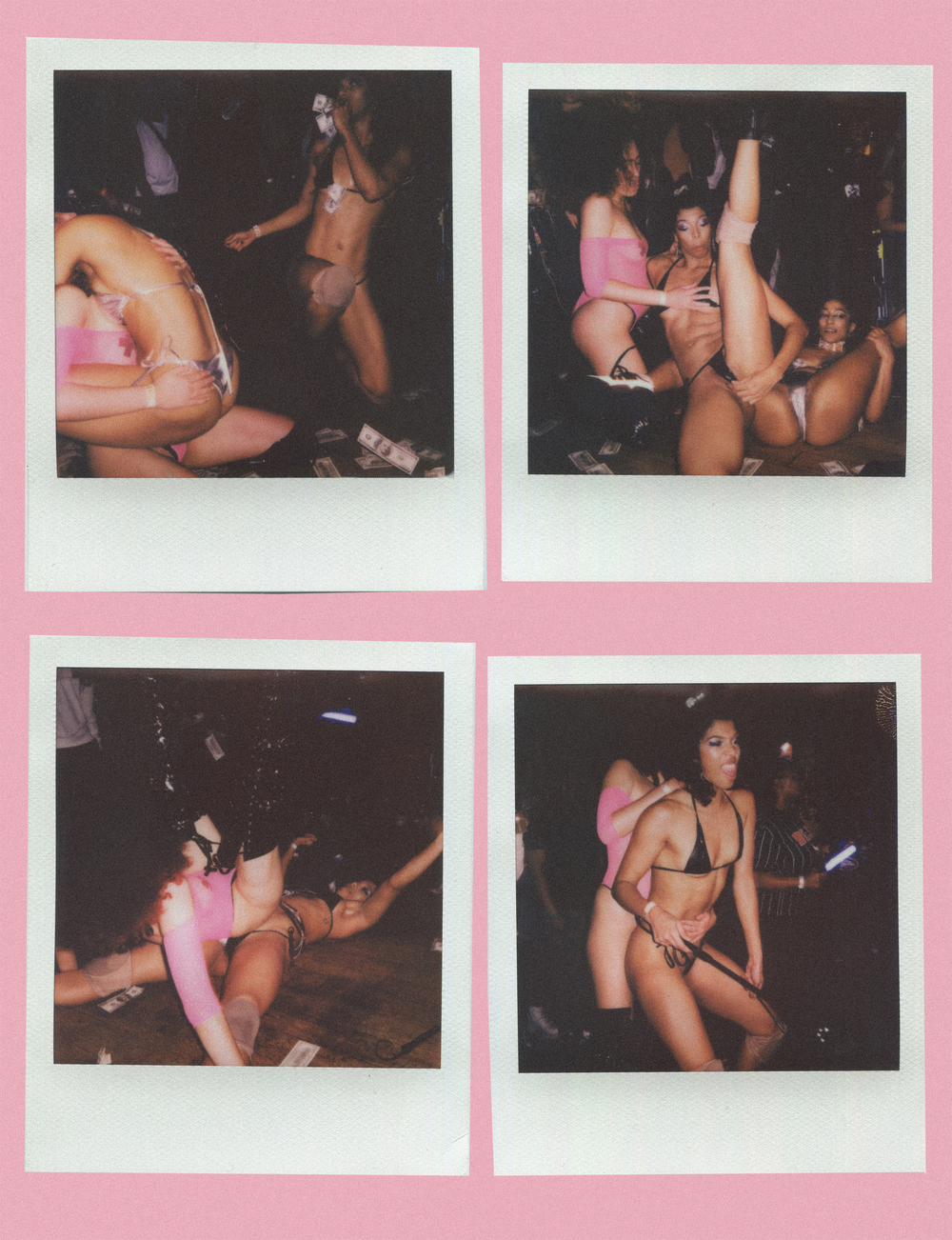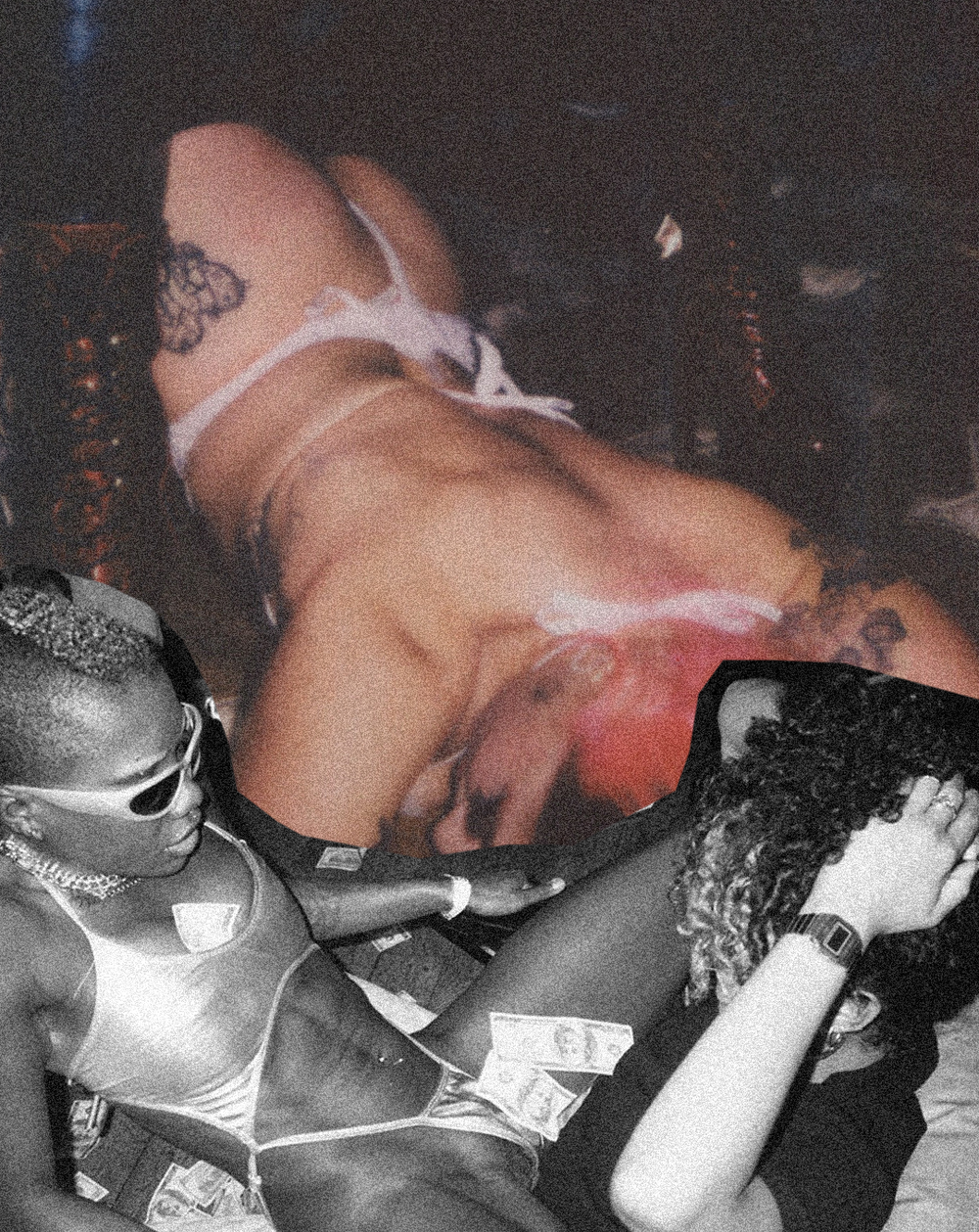Queer Whore Collective: For International Women’s Day We Demand Erotic Equity
International Women’s Day (March 8th) is tomorrow, and the theme this year is embracing equity. For Sex and Rage, my collective which exists to resist stigma and shame through sex education, we are embracing the idea of erotic equity. Inspired by Shakedown, the radical documentary by Leila Weinraub which documents a Los Angeles lesbian strip club in the early 2000s, we began this event to support lesbian and bisexual sex workers by providing a safe, sensual and creative environment where we can encourage lesbian and bisexual women, trans-masc and non-binary people to explore our desires in a space where what turns us on is not just a mere afterthought or a gratuitous side dish for lecherous men, but the very centre of our collective experience. Granting ourselves erotic equity means acknowledging the value, and validity, of our sexuality, and by giving ourselves the space to explore the full breadth of these desires, means that we are ever closer to something that looks like freedom.
When it comes to divisive issues in feminism, the question of sex takes a large slice of the proverbial cake. For that matter, and to extend the dessert metaphor, talking about desire in its more subversive forms is a little bit like our wariness of baked goods; delicious, decadent and often demonised by so-called experts who undermine the health benefits of the occasional indulgence. In the same way the culture of culinary puritanism encourages us to feel bad when we reach for our favourite sweet treats, so do many social puritans deny the positive benefits of discussing and engaging with how we position ourselves (pun intended) within not just our personal practices of sexual pleasure, but our political and economic responses to any behaviour that is considered deviant or oppressive. The thing is, desire shapes our lives in many complex and fundamental ways that it can, and should, be seen as essential to academic, political and embodied liberatory practices, on both a grassroots and institutional levels. Pleasure, whether derived from food or from sex, tells us a lot about society, and a lot about our freedom. Those who have access to the fulfilment of their erotic liberties, free from personal shame and public persecution, typically tend to be those who, in general, have more power.
There are two groups who know perhaps better than anybody the dangers of the contentious and highly fragmented nature of feminist rhetoric around sex and desire: sex workers and lesbians. (When I say lesbian, I mean to include those who also identify as bisexual, as I do myself, and pansexual. In this article, I’m specifically talking about same-sex, not gendered, desire.) Universally, the histories of both sex workers and lesbians are hard to find. Tantalising glimpses of us exist within the historic record. What remains poignantly absent from not just mainstream portrayals of these lineages, but from LGBTQ+ narratives both in contemporary scholarship and activism, is an understanding not just of the essential relationship between these two demographics, but how desire itself forms the basis of a critical discourse the foundations of which are ethics, morality, individualism and community. For the many of us who identify as both sex workers and queer, it is clear that the relationship between being both an object of desire, and desiring the object, is at once a controversial, subversive and radical space in which to belong.
Our communities at once seek to dismantle the perpetuation of the male gaze in our activism, whilst working as independents to satisfy it and, therefore, sustain ourselves. On the other hand, we seek to fulfil our sexual desires and create our own erotic landscapes in which we see ourselves emerge as figures grounded within our bodies, our sexualities and our power. Yet for many feminists, existing within communities expounding conflicting ideologies about what it means to be both politically and sexually free, identifying the conditions under which we can and should explore the realms of our innermost desires can become a journey riddled with feelings of shame, guilt and classic sapphic yearning.
When it comes to the embodiment and intellectualisation of sex, what lesbian’s heart doesn’t beat to the complex syncopation of Cardi B’s WAP and Audre Lorde’s Uses of the Erotic? How would the brilliant, sensual and radical Lorde and her rejection of the “plasticized sensation” of contemporary eroticism have responded to the eye-popping, mouth watering Cardi and Megan Thee Stallion’s 2021 Grammy Performance of WAP? It’s a conundrum that lives, however secretly, rent free in many of our minds.
As many sex workers will tell you, the advocacy that is most meaningful to us is not theoretical discourse around morality or acceptability of the work based on our contributions to society. Typically, these discussions can lead into a dangerous area that ultimately further stigmatises and puts us even further into harm's way. We are all acutely aware that we spend our working lives fulfilling the desires of, for the most part, men.
“It means celebrating both Lorde and Cardi, in all their paradoxical expressions of female, queer erotic desire. And while it’s not always possible to both have your cake and eat it, when it comes to sexual pleasure, it’s important to know you’re getting your fair share of the sexy pie.”
Instead of attempting to deny our legitimacy and politicise against us because of this, a more proactive and radical approach to balancing the dominant forces of patriarchal desire is to spend more energy in creating spaces that resist the homogeneity, ubiquity and dominance of the male gaze, and instead centre the desires of sex workers and lesbians who have had to fight tooth and nail for visibility and acceptance through millennia of erasure and stigmatisation of sex work, lesbian and queer sexualities. Advocating for erotic equity means creating space for the expression of our desires, and for being desired. It means celebrating both Lorde and Cardi, in all their paradoxical expressions of female, queer erotic desire. And while it’s not always possible to both have your cake and eat it, when it comes to sexual pleasure, it’s important to know you’re getting your fair share of the sexy pie.
Words: Black Venus | Photos: Imogen Cleverley
Black Venus is a professional Afro-disiac with over ten years experience in the industry. Martial artist, writer, performer and facilitator, her work is an exploration of pleasure, power and agency. She is founder of Sex and Rage, a sex worker and activist led organisation resisting stigma and shame through


